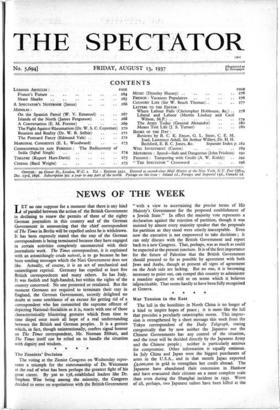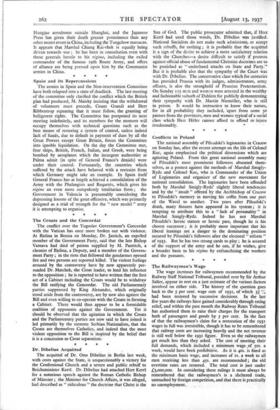War Tension in the East The lull in the hostilities
in North China is no longer of a kind to inspire hopes of peace ; it is more like the lull that precedes a peculiarly catastrophic storm. This impres- sion is strengthened by a short message this week from the Tokyo correspondent of the Daily Telegraph, stating categorically that by now neither the Japanese nor the Chinese Governments has any control of the situation, and the issue will be decided directly by the Japanese Army and the Chinese people ; neither is particularly anxious for compromise. Other information is equally ominous. In July China and Japan were the biggest purchasers of arms in the U.S.A., and in that month Japan exported £9,000,000 in gold to strengthen her credit abroad. The Japanese have abandoned their concession in Hankow and have evacuated their citizens on a more complete scale than even during the Shanghai incident in 1932. Worst of all, perhaps, two Japanese sailors have been killed at the Hungjao aerodrome outside Shanghai, and the Japanese Press has given their death greater prominence than any other recent event in China, including the Tungchow massacre. It appears that Marshal Chiang Kai-shek is equally being driven towards war ; he has been in consultation even with those generals hostile to his regime, including the exiled commander of the famous 19th Route Army, and offers of alliance are being pressed upon him by the Communist armies in China.
*







































